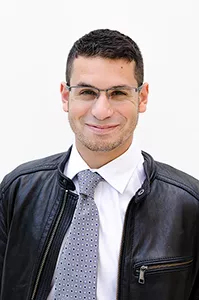
UTM Sustainability Student a World-Class Change Maker
David Harary, current MScSM student (Class of 2017), recently won a Corporate Knights' Top 30 Under 30 award. IMI asked him to provide more insight into his background and why he felt he was recognized.
What projects/experiences do you believe contributed most to your award?
Every experience I’ve had, which is a varied bunch, contributed in some way. In my previous work, I focused performing research. Research is a time-consuming job and demands high articulation and factuality.
When I shifted into policy-making, I realized how much faster-paced the legislative process is. For example, I was a part of the policy-making team in the Massachusetts House of Representatives. We turned ideas into policies: it was a lot of responsibility, but also an invaluable learning opportunity.
I then moved into administrative/executive work. This involved a lot of lobbying on behalf of different organizations, like Public Citizen and NASA. In the summer of 2016, I worked for U.S. National Oceanic and Atmospheric Administration (NOAA). I helped develop business plans to nurture public and private relations between marine sanctuaries and governmental organizations.
These opportunities expanded the depth and breadth of my knowledge around policy-making and the vast involvement that is required to make it happen.
Could you please discuss a sustainable initiative you were involved in that aided you along your career pathway?
Founding a not-for-profit think-tank (Center for Development and Strategy) offered tremendous insight into potential career avenues. CDS fosters connections between researchers, millennials and governmental policy-makers pertaining to sustainability practices. Contrary to public opinion, capitalism and the environment can work together. Sustainability is the most important objective for a prosperous future: I believe millennials are more connected and concerned than ever before about the balance of environmental and economic prosperity. It is critical that young people do this, because the world demands strong sustainable advocates in the coming years.
What are your career plans and goals after graduation from MScSM?
I hope to gain further field experience into global sustainability, resource scarcity and its related challenges. Climate change and the supply of natural resources can predict conflicts in certain areas of the world. Food prices and access to drinking water have resulted in a lot of social unrest lately, and the pattern will likely continue. The consequences of a degrading Earth will be felt around the globe, so we must prepare to manage our resources accordingly. Other than field work, I would like to return to Washington DC and further build the CDS.
